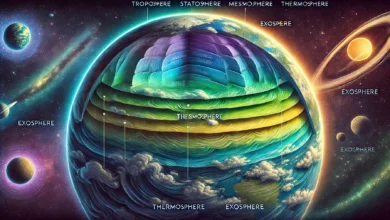6 Scientific Advances Revolutionizing Our World
Science is progressing at a rapid pace, with breakthroughs and innovations transforming industries, societies, and even our daily lives. From medicine to energy, and technology to space exploration, scientific advances are shaping the future in profound ways. This article delves into six of the most transformative scientific developments that are revolutionizing our world, offering a glimpse into the future of humanity.
1. Artificial Intelligence (AI) and Machine Learning
Artificial Intelligence (AI) is arguably one of the most influential scientific advances of the 21st century. By mimicking human cognitive functions, AI is revolutionizing everything from healthcare and education to entertainment and business.
Key Advances in AI and Machine Learning:
- AI-Powered Healthcare: AI is enhancing diagnostic accuracy and accelerating drug development. For example, AI models can analyze medical images for conditions like cancer with higher accuracy than human doctors.
- Natural Language Processing (NLP): AI-driven NLP systems, like OpenAI’s GPT models, are transforming communication, enabling machines to understand, generate, and translate human language with remarkable precision.
- Autonomous Vehicles: AI is the driving force behind self-driving cars, optimizing road safety and creating the potential for efficient, eco-friendly transportation.
- AI in Business: AI is streamlining business operations through automation, predictive analytics, and customer service chatbots, making companies more efficient and responsive.
Impact:
- Job Automation: AI is reshaping labor markets, automating repetitive tasks while also creating demand for new skill sets.
- Healthcare Revolution: AI-powered tools promise faster diagnoses and personalized treatments, improving patient outcomes.
According to McKinsey, AI could add up to $13 trillion to global economic output by 2030.
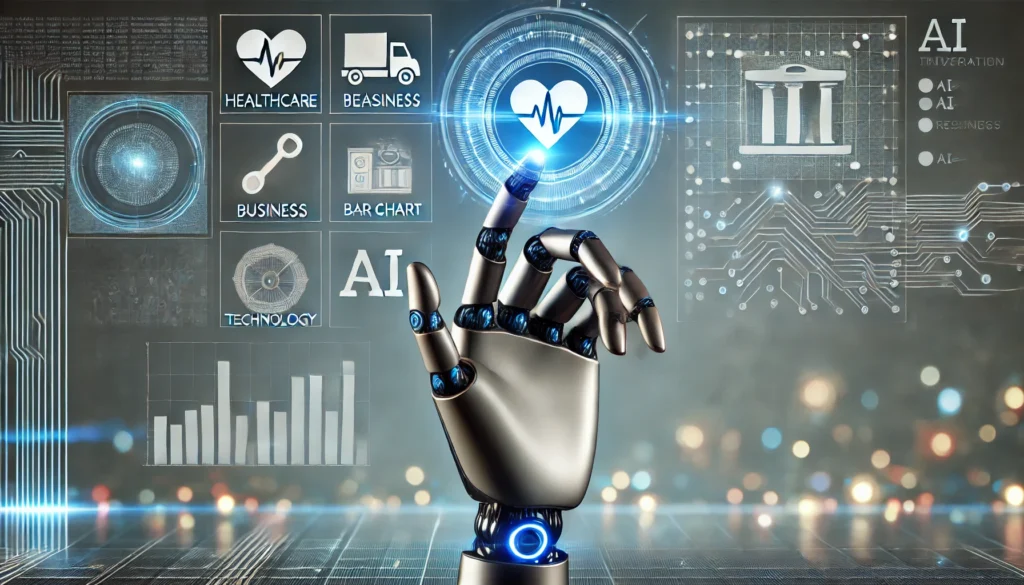
2. Gene Editing and CRISPR Technology
Gene editing, particularly CRISPR (Clustered Regularly Interspaced Short Palindromic Repeats), is a groundbreaking scientific tool with vast potential. By enabling precise modifications to the DNA of living organisms, CRISPR is opening doors to transformative treatments for genetic diseases, agricultural advancements, and much more.
Key Applications of CRISPR:
- Medical Advancements: CRISPR offers the potential to cure genetic disorders like sickle cell anemia, cystic fibrosis, and even certain types of cancer by editing faulty genes.
- Agricultural Improvements: Gene editing is improving crop yields, pest resistance, and nutritional content. For instance, scientists are working on genetically modified crops that can withstand climate change and provide better food security.
- Disease Prevention: CRISPR is also being explored for its potential in preventing the transmission of infectious diseases by editing the genes of vectors like mosquitoes.
Impact:
- Ethical Concerns: While promising, CRISPR raises significant ethical issues, especially regarding human germline editing.
- Disease Eradication: It could lead to the eradication of previously incurable genetic disorders.
The CRISPR-Cas9 technology was awarded the 2020 Nobel Prize in Chemistry, recognizing its transformative impact on genetic engineering.
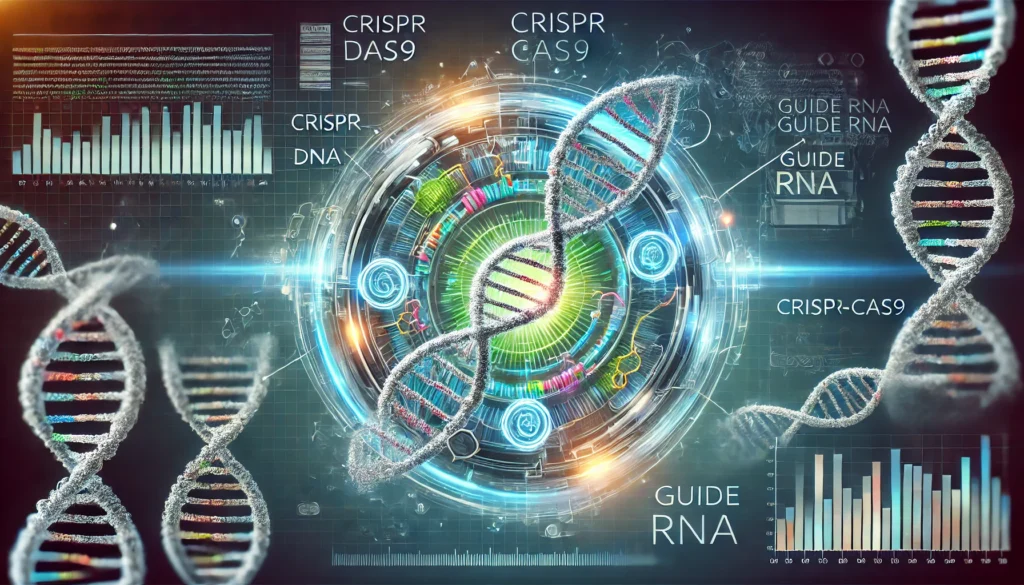
3. Quantum Computing
Quantum computing is another frontier that holds the promise of solving problems beyond the capacity of today’s classical computers. By exploiting the principles of quantum mechanics, quantum computers can process information in ways traditional computers cannot.
Key Features of Quantum Computing:
- Exponential Speed: Quantum computers can perform calculations at speeds exponentially faster than classical computers, which could revolutionize fields like cryptography, materials science, and complex simulations.
- Data Security: Quantum encryption methods are being explored as a way to make data transmission virtually hack-proof, providing next-level security for sensitive information.
- Solving Complex Problems: Quantum computing could solve problems related to climate modeling, drug discovery, and optimization that would take classical computers millennia to compute.
Impact:
- Faster Innovations: Industries like pharmaceuticals, energy, and materials science are likely to benefit from quantum computing’s ability to solve complex problems quickly.
- Data Protection: Quantum encryption could make current security systems obsolete, offering better protection against cyber threats.
Companies like IBM, Google, and Microsoft are making significant progress in quantum computing, with some claiming to have achieved “quantum supremacy.”

4. Renewable Energy and Clean Technology
The transition to renewable energy is one of the most critical scientific advances of our time. As the global climate crisis intensifies, there is an urgent need for sustainable energy sources to replace fossil fuels. Breakthroughs in clean technologies are making this transition more feasible.
Key Advances in Renewable Energy:
- Solar Power: Advances in photovoltaic cells and solar panel efficiency are making solar energy more accessible and affordable. Innovations in solar storage systems also allow for energy capture and use even when the sun isn’t shining.
- Wind Energy: Offshore and onshore wind farms are generating increasing amounts of energy. New developments in wind turbine design are improving efficiency and reducing costs.
- Hydrogen Energy: Hydrogen is being explored as a clean fuel for industrial applications and transportation, offering the potential to reduce carbon emissions.
- Energy Storage Solutions: Innovations in battery technology, including solid-state batteries, are making energy storage more efficient, helping to manage the intermittent nature of renewable energy sources.
Impact:
- Global Sustainability: Renewable energy will play a critical role in reducing global carbon emissions and mitigating climate change.
- Energy Independence: Nations can reduce dependence on fossil fuels, creating more energy security and resilience.
The International Energy Agency (IEA) predicts that solar power could be the largest source of electricity globally by 2050.
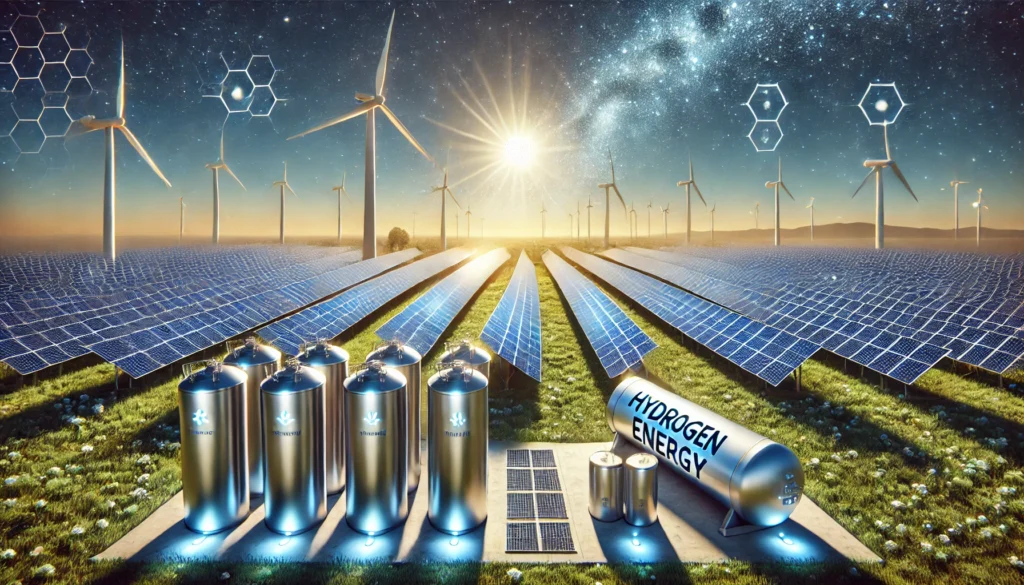
5. Space Exploration and Colonization
Space exploration has moved beyond the realm of science fiction. Private companies like SpaceX, along with international space agencies like NASA, are pushing the boundaries of space travel, aiming to explore new planets and even colonize Mars.
Key Advances in Space Exploration:
- Reusable Rockets: SpaceX’s Falcon 9 and other reusable rocket technologies have drastically reduced the cost of space travel, making it more affordable and sustainable.
- Mars Colonization: SpaceX’s plans for Mars colonization are progressing, with prototypes of their Starship rockets undergoing testing for future crewed missions.
- Space Tourism: Companies like Blue Origin and Virgin Galactic are making space tourism a reality, offering civilians a chance to experience suborbital flights.
- Interplanetary Exploration: NASA’s Perseverance rover and other missions are exploring Mars in search of signs of past life and preparing for potential human settlement.
Impact:
- Space Economy: The growing space economy will lead to new industries, jobs, and commercial opportunities in areas like satellite communication and space tourism.
- Human Expansion: Space colonization could offer humanity a “plan B” for survival, should Earth face existential threats in the distant future.
NASA’s Artemis program aims to return humans to the Moon by 2025, laying the groundwork for future missions to Mars and beyond.
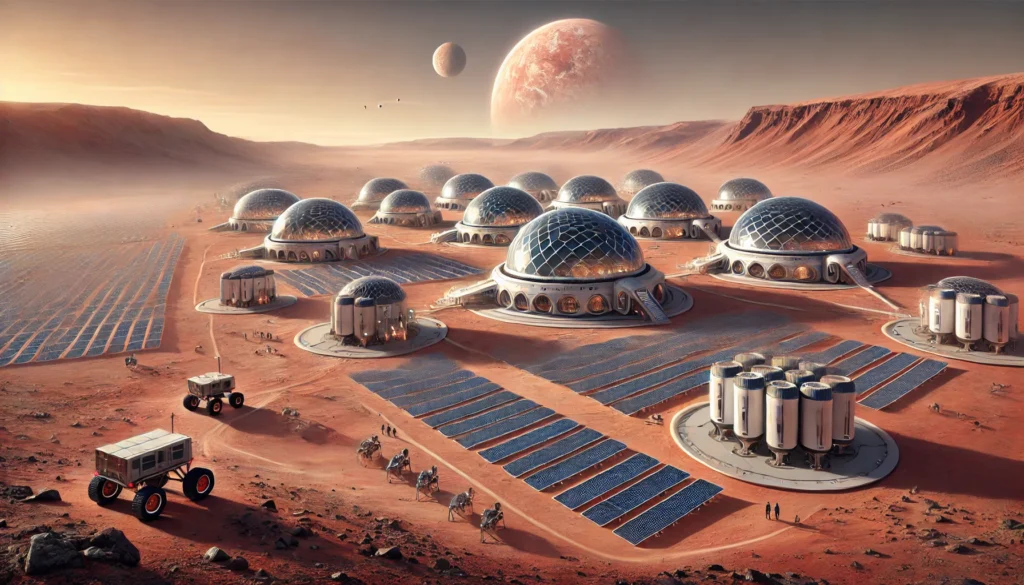
6. Blockchain and Cryptocurrencies
Blockchain technology and cryptocurrencies are disrupting financial systems and business models worldwide. By offering a decentralized and transparent way to conduct transactions, blockchain is revolutionizing industries far beyond just finance.
Key Applications of Blockchain:
- Cryptocurrencies: Bitcoin, Ethereum, and other cryptocurrencies are reshaping the way we think about money and digital assets. These decentralized currencies operate outside the control of central banks and governments.
- Smart Contracts: Blockchain enables the use of smart contracts, which are self-executing agreements with the terms of the contract directly written into code. This can streamline processes like real estate transactions, legal agreements, and supply chain management.
- Supply Chain Transparency: Blockchain provides transparency in tracking goods and services, ensuring accountability and reducing fraud.
Impact:
- Decentralized Finance: Cryptocurrencies and blockchain are creating new financial systems outside traditional banking.
- Enhanced Security and Efficiency: Blockchain’s transparency and immutability make it ideal for improving security and reducing fraud in numerous sectors.
The total market capitalization of cryptocurrencies reached over $2 trillion in 2021, illustrating the massive impact of blockchain technologies on global finance.

Scientific advances are revolutionizing nearly every aspect of our world, from healthcare and energy to space exploration and financial systems. The technologies discussed in this article — AI, CRISPR, quantum computing, renewable energy, space exploration, and blockchain — are not only shaping the future but are also providing immediate solutions to some of the world’s most pressing challenges. As these breakthroughs continue to evolve, we can expect a world that is smarter, more sustainable, and interconnected than ever before.
FAQs
- What is AI’s role in healthcare? AI enhances diagnostics, accelerates drug discovery, and enables personalized treatment plans.
2.Can CRISPR cure genetic diseases? Yes, CRISPR is being used in clinical trials to treat genetic disorders by editing faulty genes.
- How fast can quantum computers process data? Quantum computers can perform calculations exponentially faster than traditional computers.
- What are the benefits of renewable energy? Renewable energy reduces carbon emissions, offers sustainable power, and decreases dependence on fossil fuels.
- What is the goal of space colonization? Space colonization aims to make human life multi-planetary and reduce dependence on Earth for survival.
- How is blockchain changing the financial sector? Blockchain offers decentralized, secure, and transparent methods for conducting financial transactions.
- How will quantum computing impact cybersecurity? Quantum encryption will make data transmission more secure, potentially rendering current encryption methods obsolete.
- What is the significance of blockchain in supply chains? Blockchain provides transparency and traceability in supply chains, reducing fraud and improving accountability.




